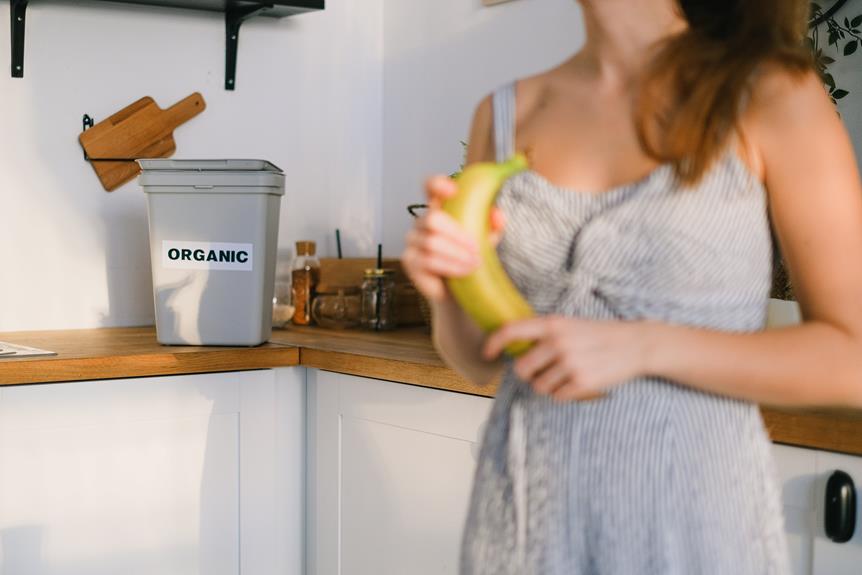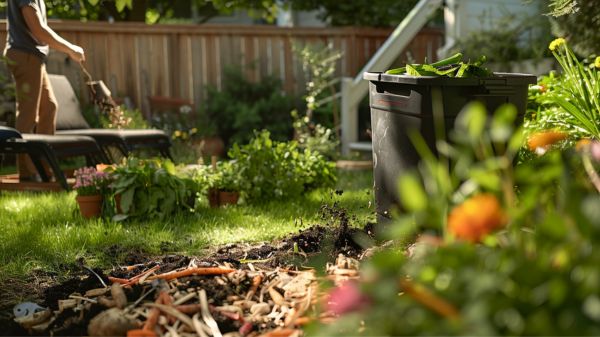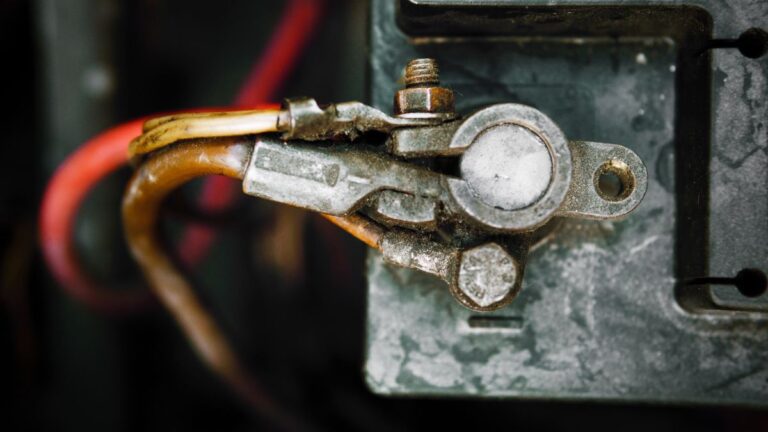4 Best Methods to Initiate Home Composting
Are you ready to join us on our journey to create nutrient-rich soil right in our own backyards? In this article, we will explore the four best methods to initiate home composting.
By choosing the right composting method, setting up our composting system, managing our compost pile, and harvesting and using our compost, we can contribute to a more sustainable and eco-friendly lifestyle.
Let’s get our hands dirty and start composting together!
Choosing the Right Composting Method
We prefer using a bin as our composting method for its convenience and versatility. Composting offers numerous benefits, such as reducing waste, enriching soil, and minimizing the need for chemical fertilizers.
However, it’s important to choose the right composting method to ensure success. Using a bin allows for controlled decomposition and prevents pests from accessing the compost. One common problem in composting is the presence of foul odors. To troubleshoot this issue, make sure to add a balanced mix of brown and green materials, regularly turn the compost to aerate it, and avoid adding meat or dairy products.
Another common problem is slow decomposition. To address this, ensure a proper balance of carbon and nitrogen-rich materials, maintain moisture levels, and provide sufficient aeration by turning the compost regularly.
Setting Up Your Composting System
How can we efficiently set up our composting system at home?
Setting up a composting system requires a few key elements to ensure success.
First, choose a composting container that suits your needs and space constraints. Options include compost bins, tumblers, or even DIY containers made from repurposed materials.
Next, consider the composting ratio. Aim for a balance of green materials, like fruit and vegetable scraps, grass clippings, and coffee grounds, with brown materials, such as dried leaves, straw, and newspaper. This balanced ratio of carbon-rich browns and nitrogen-rich greens will help facilitate decomposition and prevent odors.
Finally, place your composting container in a convenient location, preferably in a sunny spot to hasten the decomposition process.
With these steps, you’ll be well on your way to setting up an efficient home composting system.
Managing Your Compost Pile
To effectively manage our compost pile, we must regularly monitor its moisture levels and turn the materials to promote decomposition.
Maintaining the right moisture balance is crucial for successful composting. If the pile becomes too dry, decomposition slows down. On the other hand, if it becomes too wet, it may start to smell and attract pests.
To troubleshoot these issues, add water if the pile is dry or mix in dry materials like straw or leaves if it’s too wet. Turning the materials helps to aerate the pile and speed up decomposition. This can be done using a pitchfork or compost turning tool.
For those with limited space, consider using a compost tumbler or a worm composting system, which are both suitable for composting in small spaces.
Harvesting and Using Your Compost
After managing our compost pile and ensuring the proper moisture balance, the next step is to harvest and utilize the compost.
Using compost in your garden has numerous benefits for both your plants and the environment. Compost is a valuable source of nutrients that can improve soil structure, increase water retention, and promote healthy plant growth. It enriches the soil with organic matter, enhances microbial activity, and reduces the need for chemical fertilizers.
Additionally, composting helps divert organic waste from landfills, reducing methane emissions and supporting a more sustainable waste management system.
When harvesting your compost, look for a dark, crumbly texture and a sweet, earthy smell. Use it as a top dressing, potting mix, or incorporate it into the soil before planting.
Embrace the rewards of composting and enjoy a thriving, eco-friendly garden.
Conclusion
In conclusion, home composting is beneficial for the environment and a great way to reduce waste and create nutrient-rich soil. By choosing the right composting method, setting up a proper system, and managing your compost pile, you can easily turn kitchen scraps and yard waste into valuable compost.
So why not take a step towards sustainability and start composting today? How much impact can your composting efforts have on reducing landfill waste? Share your thoughts in the comment below!





